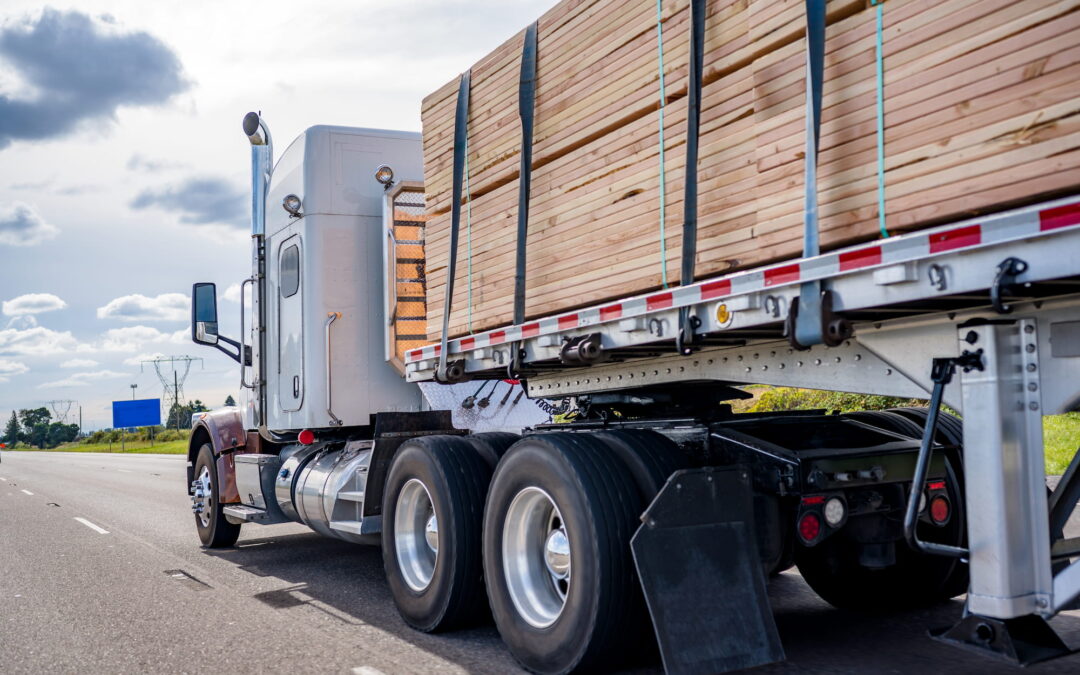Shipping construction materials domestically has shown significance in the U.S. construction industry, which generates over $1.23 billion yearly. Both businesses and individual shippers have a strong need for cargo transportation. Construction companies understand the importance of timely supplies to their job site. Disruptions or delays in the transportation process can result in a loss of thousands of dollars. Goods like steel, cement, and wood have specific ways that they move to their final destination. This article will explain how construction materials ship and what is needed to start shipping this type of freight. For importing construction supplies into the U.S. from an international country, click here.
How are construction supplies shipped?
Domestic shipping is transporting freight within a country’s borders and can include various methods of conveyance. This article will focus on movement by truck. The shipment’s size is one of the main determinants for deciding how the construction materials move. Small to regular-sized supplies are typically shipped in a standard 20 or 40-foot container. An example is roofing components, secured on pallets before loading into a dry van container. Another factor to consider for transportation is the cargo’s weight. Along with oversized construction shipments, materials too heavy for a container will require heavy-haul shipping.
Heavy-haul or bulk shipping is the transportation of freight that exceeds the legal dimensional regulations. In the U.S., the guidelines vary by state; however, general rules include the following:
- cargo with a height of over 13.6ft
- cargo with a weight over 8.6ft
- cargo with a length of over 53ft
- cargo with a weight over 80,000lbs
Construction materials tend to surpass legal regulations when shipped and move using flatbed trailers. Flatbeds are open-air trailers with no roofs or sides to transport oversized equipment like machinery and building supplies. This trailer can have several kinds of flatbeds, including the lowboy, step-deck, removable gooseneck, and other types. Truckers require permits when handling these trailers due to the expertise needed.
How to Start Shipping Construction Materials Domestically?
Before starting the transportation journey, first-time shippers should research the rules and regulations for the material they are shipping. With the many items considered construction material, you must know the rules for your specific good. Understanding the type of packaging needed for delivery is also necessary. When the shipment is ready for transport, you must find a carrier with the current permits. While construction companies may already have drivers with permits, the permit process may be tedious for one-time and smaller shippers. After the sets the date and time, the carrier will pick up the cargo and drive it to its destination.
Another way that a shipper can guarantee a successful shipment is by talking to a freight broker. A broker acts as the middleman between the shipper and the carrier and coordinates the movement of the goods. This is ideal for first-time shippers and shippers looking for a good quote from various truckers. Contact A1 Freight Solutions at 786-375-9420 or info@a1fsinc.com to speak to a freight broker regarding the transportation of your cargo. Along with construction materials, we offer solutions for transporting various shipments domestically.

